10 Tips to Becoming a Better Writer by William R. Leibowitz
10 Tips To Becoming a Better Writer by
William R. Leibowitz
1.
Prepare
as highly detailed an outline as possible.
This will save you a great deal of time in the long-run because you’ll
cut-down on the wasted effort of writing portions of the book which land-up
being discarded when they don’t fit in structurally. The more detail that’s contained in the
outline—the better. It’s easier to
fine-tune, revise and develop an outline than the full-fledged prose of the
novel. If the outline isn’t compelling
–the novel
won’t be either.
2. Once
you have the final outline in hand, it’s time to start writing the book. The hardest thing to do is to write that very
first sentence. Just do it. The sentences to follow will get easier as
you immerse yourself in the process. And
soon, you’ll find that you are getting into “the rhythm of writing.”
3. Take
your time—writing a novel isn’t a race.
4. Let
people whom you respect among your family and friends, pre-edit your work once
you are happy with it. Do this on a
regular basis –i.e., every six or seven chapters, rather than waiting until you
finish the novel. Take their comments and criticisms seriously because they are
a gauge of what the public will think—except the public will likely be less
sympathetic. Remember that you are
writing a novel to connect with many people –so it does you no good to take a
“superior attitude” and assume that you’re right and your “ordinary reader
critics” are wrong. You don’t have to
pander to public tastes, but unless you’re writing the book just for yourself –
you need to be cognizant of what others think of your efforts.
5. When
you read portions of your writing out loud –do they sound really good to
you? If they don’t —then your re-writing
efforts are not over. You need to be
impressed with your writing. If you’re not
–then no one else will be.
6. When
you read the emotional parts of your novel to yourself –do they really move you
and connect with you viscerally? If not
–then your re-writing efforts are not over.
7. Develop
self-discipline about the process of writing.
It’s important that you sit down in a quiet place with regularity
(preferably every day) and try to write at least a few hundred words that
reasonably satisfy you. If you let long
time periods go by between your writing sessions, you will lose creative
momentum.
8. There’s
no point trying to write when you’re physically tired, mentally exhausted or
inebriated. And there’s no point
trying to write if you think it’s going to be easy to write.
9. You
need to recognize that everything you write isn’t holy. If you aren’t prepared to tirelessly rewrite
and improve your work, then your end product will be a shadow of what it could
be.
10. Remember
that the words you write and publish, won’t go away. They are not ephemeral like talking. These words will outlive you, somewhere
–whether in print or on the internet.
So—are you truly satisfied with them?
You’re not finished until you’re proud of what you’ve written and
believe that it is the best you can do.
Your work represents the core of who you are. It defines you.
William R. Leibowitz has been practicing entertainment/media law in New York City for a number of
years. He has represented numerous
renowned recording artists, songwriters, producers and many of the leading
record companies, talent managers, merchandisers and other notable
entertainment businesses. At one point,
he was the Chief Operating Officer/General Counsel for the Sanctuary Group of
Companies, a U.K. public company
that was the largest ‘indie’ music company in the world (prior to its
acquisition by the Universal Music Group).
William has a Bachelor of Science degree from New York University (magna cum laude, Phi Beta Kappa) and a
law degree from Columbia University. He lives in the village of Quogue, New York with his wife, Alexandria, and dog,
George.
William wrote Miracle
Man because of its humanistic and spiritual messages and because he
feels that in our current times – when meritless celebrity has eclipsed
accomplishment and the only heroes are those based on comic books, the world
needs a real hero –and that, of course, is Robert James Austin, the protagonist
in Miracle Man. Miracle Man
won Best Thriller in the National Pacific Book Awards.
For More Information
- Visit William Leibowitz’s website.
- Connect with William on Facebook and Twitter.
- Visit William’s blog.






















































































































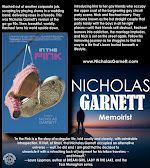









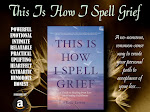
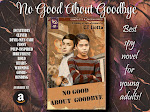









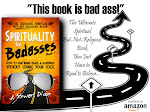





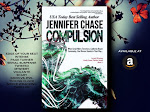

























Leave a Comment